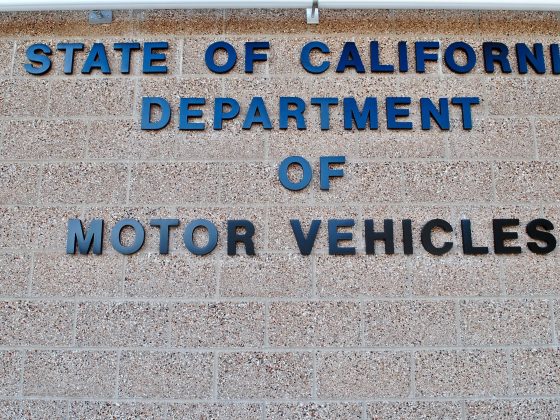It’s tax season, and this year the IRS pushed back the deadline for claiming tax returns and filing the 1040 form. What is usually an April 15th deadline for individual tax returns filings, is May 17th in 2021. If you’re wondering how a car donation affects your tax return, or how to even write off your vehicle, keep reading for helpful tips on how to claim your donation.
Use eTags© to Quickly Complete Your DMV Service. Renewals, Title Transfers and More, All Online!
Certain fraternal societies are considered nonprofit organizations and can accept your donated vehicle
Only IRS-approved car donation charities count
If you’re giving away your vehicle to a friend or family member, know that it’s not tax deductible. You need to donate the vehicle to a certified 501(c)3 public charity for possible tax income deduction purposes. The IRS has an approved list of charities called “Publication 78,” with a list of all certified nonprofit foundations you can donate to. These include charitable organizations, community trusts, and churches or synagogues. You can also call the IRS at 877.829.5500 to determine if your charity of choice qualifies.

How to donate your vehicle
First you want to know how much your car is worth; in other word’s what’s the fair market of your sedan, SUV, pickup, or whichever vehicle you want to give away. When researching make sure you include make, model, year, mileage, trim and if you have a clean title to go along with your vehicle.
Most car donations are older or in less-than-ideal condition, so their value is typically under $5,000
You can check with the Kelley Blue Book, Edmunds’ Appraise Your Car Calculator tool, or NADA Guides to get a dated estimate of fair market value. Please note: the amount of your tax deduction is dependent on your car’s value at the time of donation and what happens to it after it’s donated.

Next, you have to figure out which charity you want to donate your vehicle to. Look for charities with less administrative costs so you know proceeds can be maximized. Some 501(c)3 charities use an intermediary service to facilitate donations, which means there’s added cost to the process. In that case, look for a charity that keeps at least 75% of the proceeds.
Look for charity with administrative costs that are less than 15%
There’s another way to maximize your donation
Instead of donating the car directly to the nonprofit organization of your choice, you can sell your vehicle and donate the proceeds. This process will most likely get you a bigger tax credit because you can control the price of the sale. If you chose to sell the car yourself, and donate the proceeds, just keep a receipt for proof of price.
If you’re donating a junk car, an online auction website may give you a more precise value
Title transfer and charity documentation
When donating your vehicle to a nonprofit, expect to receive documentation for your tax purposes. The paperwork should itemize the donation, have the charity’s name, your tax ID or number, mention the contribution, the vehicle’s VIN #, and verification hat you didn’t get compensation for it.

If your car is worth more than $500, you must complete section A of the IRS Form 8283 and attach it to your yearly taxes. If your car is worth over $5,000, then you must have an independent appraisal and fill out Section B of IRS Form 8283.
You also have to transfer the ownership of your vehicle to the charity you’re giving it away to. So you’ll need a title transfer. Make sure to have the charity’s name on the vehicle title. If the charity ends up selling your donated car, they’ll send you a 1098-C form which specifies how much money you can claim on your taxes. It’s crucial you transfer the title so that you’re not responsible for anything like parking tickets or even car accidents that happened after you donated the vehicle.

Most charities will sell donated vehicles, but if a buyer doesn’t register the vehicle, it’s still legally yours and you’re responsible for it. eTags can help you transfer the title online, so you don’t have to make an appointment at your local DMV or wait in line to get the process done.
Itemized deduction vs. standard deduction
However you choose to donate your vehicle, you have to complete a 1040 form for your taxes to itemize deductions. Under the “gifts to charity” section, you can include the donated vehicle. If that’s your only deduction, it’s probably better for you to take the standard deduction so you can save thousands more dollars in taxes.

The only way that donating a car is beneficial for your tax return is if your TOTAL deductions, including the car, exceeds the standard one. For the tax year 2020, the standard deduction for single taxpayers and married couples filing separately is $12,400. For married couples filing jointly, it’s $24,800, and for heads of households, it’s $18,650.
If you want to claim a car donation to reduce your federal income taxes, you must itemize deductions
Deduction amount for your car donation
If the charity you chose to donate your vehicle to sold your car, the deduction amount is what the vehicle sold for (even if the amount is less than fair market value). If the car sold for less than $500, you can still claim $500 as your deduction. If the charity didn’t sell your car, use the dated paperwork which proves what the car is worth, and use that amount as what you claim as deduction. If it was a junk car, or you sold the car yourself, just use the amount that was given to you for it.








